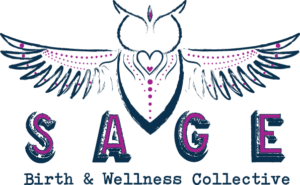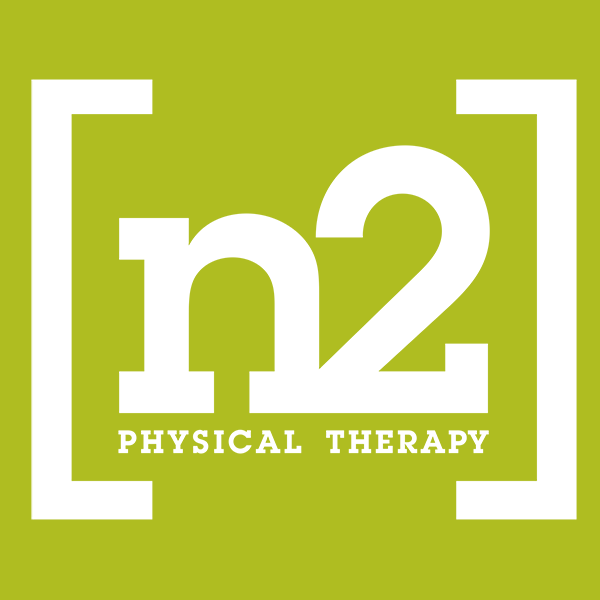About a month ago, I asked the question, “Are we better off than our mothers?” Initially, it seemed like more of a flippant query posed to myself after a bad day, but it evolved into something much richer. As I mulled this over and decided an interview with my mother was in order, I composed some general categories to help guide our discussion.
Here were the factors I considered when contrasting my parenting experience with that of my mother, a stay at home mom in the 1980s: Boredom/stress level, friendships, worries, (about safety, primarily) guilt, resentment, and the ease of the transition into parenthood.
This exploration proved to be much more complicated and multi-layered than I expected, but if I had to answer my question with a simple yes or no, my response would be a resounding, “NO. We are not better off than our mothers. OK, maybe it is more accurate to say, ” I am not better off than my mother.”
However, to answer a complicated question that simply makes a lot of assumptions about individual parenting experiences, discounts a lot of clarifying factors, and misses the point of taking a closer look at our happiness as mothers. It would be an erroneous generalization to state that all mothers in the 1980s were happier than mothers today are, or that moms who work aren’t as happy as moms who stay home. It is a complex cocktail that contributes to the fulfillment of a mother, and a cocktail that may vary from person to person.
I am hoping to provide you with a window into the experience of one SAHM in the 1980s. So, without further ado, here is a summary of the incredible experience I had while interviewing my mother.
I was born in 1978, and my mom stayed home with me and my brother, born in 1981, until I was 13 years old. She recalled a big debate back then over the merits of staying home with one’s children versus working.
“I parented during the Era of the Supermom, “ my mother began.
I confirmed my familiarity with this iconic “supermom”, but added that nowadays, there is an entire counterculture of moms who drink wine, wear yoga pants, and swear tell it like it is to balance out this intimidating persona.
My mom did not feel truly conflicted about her decision to be a SAHM. She commented that her own mother endorsed her choice to stay home over her sister’s choice to work. When my mother returned to work as a teacher (part-time at first, I might add) my grandma’s response was, “Why?”
Though my mom chose to stay at home, she in fact always wanted to, she struggled with her sense of worth at times, particularly around her working mom friends. “There was a constant undercurrent of inferiority below the surface, though I was eternally grateful to have been given the option of staying home,” she told me. “There was an underlying guilt over not working.”
As I listened to her confess her feelings of inadequacy around her working friends, I knew in an instant that they probably felt the exact same inferiority around her. I flashed back to my PTA meeting experience, and how ill at ease I felt around the board members, that somehow my status as a (part-time) working mom should be a source of embarrassment. I suppose everyone feels somewhat uncomfortable in their mothering skin.
When asked if she missed the actual “work”, she said no; more importantly, she found something to fill the void- volunteer work. Mom’s diverse volunteer activities were that much more important given the fact that she didn’t have a job- her own way to compete with the elusive Supermom. When she was volunteering, surrounded by other SAHMs, she never felt inferior.
 |
| Ah, the 80s. We looked happy, didn’t we? |
The activities she chose were not mundane by any stretch- there were many skills involved in coordinating the projects involved with Junior League, PTA, and a program designed to help kids understand disabilities- Kids on the Block- that mom was instrumental in pioneering. She got dressed up, loved meetings, and took it very seriously. She describes this period of intense volunteer work, which took place when my brother and I were preschool- elementary school aged as “the best time of my non-working life.”
In addition to the time spent volunteering, church was a big part of my mom’s social life. Bible Study class was a pinnacle of her week- “I loved it.”
When we were small, before she filled her hours with committee work, we got together every week with friends, and went to church weekly. Mom described Wednesday Lenten suppers as a “highlight of our week.” She also mentioned doing a weekly trade with another mom when I was a toddler, giving herself a bit of respite. She structured our weeks with activities that she herself looked forward to. She tried to find something for us to do every single day; very few days were spent entirely at home.
She had friends- we moved several times during my childhood, and everywhere we went, Mom found at least one “best friend.” She typically had several social groups she connected with- neighbors, Junior League friends, and couples that she and my dad spent time with. Another difference between us, though our youngest child is still only one, is that my parents got babysitters in the evenings much more frequently than we do. That was one way my mom managed to find time for herself- she and Dad went out to dinner, work events, meetings, and spent time with other couples. For some reason, finding a trustworthy sitter, let alone 4 or 5 to choose from, seems like more of a formidable accomplishment today.
One fact really stood out for me when we were discussing friendships: Moms seemed to be more a part of each other’s daily lives back then. Perhaps that is a generalization, but it is one that holds true in my own life- though I feel connected to many people, there are very few, if any, that I see with the regularity that my mother saw her friends when I was a kid. She claims that she didn’t feel isolated at all- she had similar parenting experiences with her friends and they had solid emotional connections to one another.
I asked mom if she ever felt bored or guilty (not that I would have any experience with that one!) and she confessed that when we were very young, the first few years were sometimes boring, and she “felt a strong compunction to be engaged with my kids all the time.” Raise your hands if that sounds familiar!
I asked her if she was stressed, and she admitted that she really wasn’t. “It was my job,” she explained. To take it a step further, I would assert that it was a job she was good at. Not all SAHMs slide into their roles with such ease. It was a comfortable fit for my mom. She loved going back to work again, but remember, she had spent over 13 years at home with us! She said that when she resumed teaching, she “loved being a part of a professional community again.”
Here’s another thing: I didn’t get the impression that my mom was frazzled very often. Nor did she share my desperate need to don loungewear the second I walk through the door. She always dressed nicely and wore makeup- it made her feel good.
I asked her if she ever felt resentful (ahem, not that I would have any experience with that, either…) and she said (quite honestly, I think,) “No.” Though I fished and fished, she would not own up to having any personal needs that she felt were unmet during this time. I know, shocking, right? She went out with my father in the evenings regularly for enjoyment, and felt that her social needs were fulfilled throughout the structure of her day. I think that there is sort of a “martyr spectrum”in motherhood, and my mom is quite a bit higher up on the spectrum than I am. Perhaps that is another difference between the eras- being self-sacrificing may have been more the norm back then- or maybe it is a personality difference.
She admitted that Dad, while he did what was asked of him in terms of parenting responsibilities, was focused on his job. I think that perhaps the standards for parental equality have changed a bit since then- even my SAHM friends have high standards for their husbands. (Or should, in my opinion.)
When I asked, “What did bother you back then?” she confided that each time our family moved, (once when I was six, then at age eleven, and again at thirteen) it was very challenging for her and that she felt helpless. She felt some resentment with these life changes, and essentially set up our whole lives in every community in which we lived.
Her specific parenting gripes- whining, my brother and I fighting, etc- seem to have faded with time, and even when she was irritated, she felt a sense of privacy about keeping negative things to herself. This is not a woman who would have Tweeted, as I was tempted to do, about ringing in the New Year by changing a diarrhea diaper at 3 a.m. Privacy, schmivacy!
When asked if she worried about our safety, she replied, “No.” Can you even wrap your head around that one, what with the internet predators, child abductions, and mass shootings that have stunned us all in the recent past?
| 1996: my high school graduation. Isn’t she pretty? |
My mom was a natural parent, and circumstances aligned to provide the optimal parenting experience for her. I have always known I had a great mom, but our interview really illuminated something for me- it pretty much doesn’t get any better than her when it comes to parents.
I think there are a few things that contributed significantly to my mom’s overall happiness as a parent. First, she had good friends. Not just one, not just casual acquaintances, but several other moms that she regularly spent time with and genuinely connected with. Having friends that we really trust and confide in is such an important component to avoiding isolation.
Second, I never truly realized this about my mom before our conversation, but it became very clear to me that my mom is incredibly gifted at balance. She found the perfect amount of activity with volunteering, structured activities with her kids, social time with her friends, and time alone with my dad. She was rarely bored once we were out of the baby/toddler years, and rarely stressed. She seems to know what she needs to do to find fulfillment and connection, but somehow avoids feeling overwhelmed. How many among us can honestly say we have found the perfect balance for our lives? Certainly not me.
So back to my opening assertion that I am not in fact better off than my mother: to clarify, I think she was less frazzled, stressed, distracted, and worried than I am. This has to do specifically with her and me. For a mother who may have been resentful, isolated, unsupported, or filled with guilt, I doubt very much that the 1980s would have been an ideal era to parent in, and I am certain that a mom who is struggling in these ways would benefit from the technology culture of virtual support.
So back to my opening assertion that I am not in fact better off than my mother: to clarify, I think she was less frazzled, stressed, distracted, and worried than I am. This has to do specifically with her and me. For a mother who may have been resentful, isolated, unsupported, or filled with guilt, I doubt very much that the 1980s would have been an ideal era to parent in, and I am certain that a mom who is struggling in these ways would benefit from the technology culture of virtual support.
After our conversation, instead of feeling sated, I hungered for more information. My first thought was, I have to interview my aunt next. My mom’s sister was a working parent with children approximately the same age as us, and I suspect her experience may have differed from my mom’s.
When I reflected on the glaring differences in our stress levels, I thought, “Is it the fact that she stayed home?” That made me pause, as I doubt very much that my SAHM friends feel the same type of serenity my mom experienced in the 1980s. After that realization, I decided, I have to interview my SAHM friends now.
I feel I have opened Pandora’s Box with this topic; there are so many layers- the era, the culture, the work status, the social situations, the financial differences, personality types, the list goes on- that contribute to the overall sense of happiness of a mother.
I am pretty sure there is a book in this. And I am going to write it.
So, my friends in real life, my friends in the blogosphere: I am asking for your help. If you would like to tell your story, I am your gal. I may track some of you down as the months go on, and ask if we can sit down over coffee and really dissect your experience as a mother.
I had no idea how enriching the experience of interviewing my mother would be, and I urge you all to try it for yourselves. Let the adventure begin!










